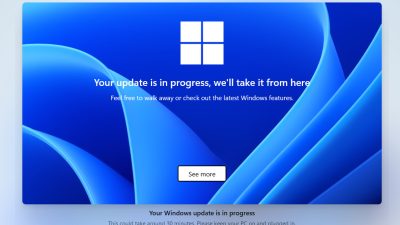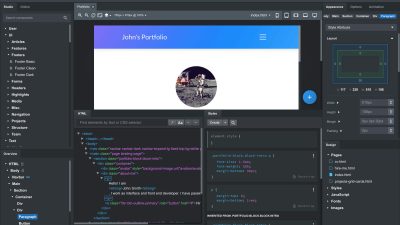Hello, fellow knowledge seekers and tech enthusiasts! Get ready to embark on a journey that will revolutionize your learning and project development experiences. In this article, we’re going to explore the incredible realm of free cloud servers created with students in mind. These cloud solutions are here to level up your academic journey and provide you with the tools you need to excel in your studies and personal projects.
What is Cloud Server?
A cloud server, also known as a virtual server or cloud-based virtual private server (VPS), is a type of server that is hosted in a cloud computing environment. Unlike traditional physical servers, cloud servers are virtual instances that run on a distributed network of physical servers, typically operated and managed by a cloud service provider. Here are some key characteristics and features of cloud servers:
- Virtualization: Cloud servers are created through virtualization technology, where a single physical server is divided into multiple virtual servers. Each virtual server operates independently with its own dedicated resources, such as CPU, RAM, and storage.
- Scalability: Cloud servers are highly scalable, allowing users to easily increase or decrease their computing resources based on demand. This scalability is often referred to as “elasticity,” and it enables businesses to handle traffic spikes or growth without the need for significant hardware investments.
- Resource Isolation: Cloud servers are isolated from one another, which means that the performance and security of one server do not directly impact others. This isolation helps ensure that one user’s activities or issues do not affect the performance of neighboring cloud servers.
- Self-Service and On-Demand: Cloud servers are typically provisioned and managed through web-based interfaces or APIs, allowing users to create, configure, and manage their servers as needed. This self-service model provides flexibility and control to users.
- Pay-as-You-Go Billing: Cloud server providers often offer a pay-as-you-go billing model, where users are charged based on their actual usage of resources. This can be more cost-effective than traditional server hosting, as users only pay for what they use.
- Redundancy and Reliability: Cloud server environments are designed with redundancy and high availability in mind. Data is often replicated across multiple physical servers and data centers to ensure uptime and data durability.
- Geographic Distribution: Some cloud providers offer the option to deploy cloud servers in different geographic regions, allowing users to optimize performance and redundancy by selecting servers closer to their target audience or disaster recovery locations.
- Managed Services: Cloud server providers may offer various managed services, including automated backups, monitoring, load balancing, and security features. Users can choose to manage these aspects themselves or rely on the provider’s offerings.
Popular cloud server providers include Amazon Web Services (AWS), Microsoft Azure, Google Cloud Platform (GCP), IBM Cloud, and many others. Organizations and individuals use cloud servers for a wide range of applications, including web hosting, application development and testing, data storage, and running various software services in a scalable and cost-effective manner.
Why Cloud Servers for Students Matter
As a student, you might not have access to high-end computer hardware or the financial resources to purchase dedicated servers. Cloud servers level the playing field by giving you access to scalable computing resources that can handle a variety of tasks. Whether you’re developing software, hosting a website, or running data analysis, cloud servers are incredibly valuable.

What is Free Cloud Server?
A free cloud server refers to a virtual computing instance or resource provided by a cloud service provider at no cost to the user, typically for a limited time or with certain usage restrictions. These servers are part of a larger cloud computing infrastructure and can be used for various purposes, such as hosting websites, running applications, or conducting experiments.
Here are some key characteristics of free cloud servers:
- No Cost: As the name suggests, these cloud servers are offered to users without any upfront or ongoing charges. They are meant to be a cost-effective solution for individuals or organizations with limited budgets.
- Limited Resources: Free cloud servers often come with restrictions on the amount of computing resources you can use. This includes limitations on CPU power, memory, storage, and bandwidth. These limitations vary from one cloud provider to another.
- Limited Duration: Free cloud server offerings may have a limited duration during which you can use them for free. This could be a trial period (e.g., 12 months) or a certain number of hours of usage per month.
- Usage Policies: Cloud providers typically have usage policies for free accounts to prevent abuse. This may include restrictions on the types of applications or activities allowed and limits on the number of free servers you can create.
- Upgrade Options: Cloud providers often offer the option to upgrade from a free account to a paid one, which provides access to more resources and features.
- Learning and Experimentation: Free cloud servers are often used by students, developers, and small businesses for learning, testing, and experimenting with cloud technologies without the financial commitment of a paid server.
- Community Support: While free cloud server users may not have access to premium support, they often benefit from community forums, documentation, and user-contributed resources.
Popular cloud service providers that offer free cloud server options for a limited time or with certain usage restrictions include Amazon Web Services (AWS), Google Cloud Platform (GCP), Microsoft Azure, IBM Cloud, Oracle Cloud, DigitalOcean, and others.
It’s important to carefully review the terms and conditions of any free cloud server offering to understand the limitations and ensure that it meets your specific needs. Additionally, consider your long-term requirements, as you may need to transition to a paid plan as your usage grows or your projects become more resource-intensive.
The Significance of Free Cloud Servers for Students
- Why are free cloud servers such a big deal for students? Let’s break it down:
- Accessibility
Cloud servers provide students with accessible and scalable computing power. No longer are you bound by the limitations of your personal computer or the need to invest in expensive hardware. With cloud servers, you can tap into computing resources from anywhere with an internet connection. - Cost-Efficiency
Let’s face it, being a student often means tight budgets. Free cloud servers offer an excellent solution to this problem. They allow you to experiment, learn, and develop projects without the financial burden of traditional server hosting. - Real-World Experience
Working with cloud servers provides students with valuable real-world experience. Many businesses and organizations use cloud computing extensively, so gaining proficiency in cloud technologies is a valuable skill for future careers.

7 Free Cloud Server for Student
Which cloud is free for students? Now, let’s delve into some fantastic options for free cloud servers that cater to students’ needs:
Amazon Web Services (AWS) Educate
Why AWS Educate is Awesome:
- Free Credits: AWS Educate provides students with free credits to use on a wide range of cloud services, including virtual servers.
- Hands-On Learning: It offers access to a wealth of learning resources and tutorials to help you get started.
- Real-World Experience: AWS is one of the leading cloud providers globally, so gaining experience with it can be a valuable addition to your resume.
Google Cloud Platform (GCP) Education
Why GCP Education is Fantastic:
- $300 in Credits: GCP Education provides $300 in cloud credits that you can use across various Google Cloud services, including virtual machines.
- Diverse Services: You can experiment with a wide range of tools and services, from machine learning to data analytics.
- Collaboration: GCP is known for its collaboration tools, making it great for group projects.
Microsoft Azure for Students
Why Azure for Students is Outstanding:
- $100 in Credits: You get $100 in Azure credits to explore a multitude of Azure services, including virtual machines.
- Microsoft Ecosystem: If you’re already familiar with Windows and Microsoft products, Azure can be an excellent choice for seamless integration.
- Learning Resources: Azure offers a wealth of tutorials and documentation to help you get started.
IBM Cloud for Students
Why IBM Cloud for Students is Remarkable:
- $200 in Credits: You receive $200 in cloud credits to experiment with various IBM Cloud services, including virtual servers.
- AI and Blockchain: IBM Cloud is known for its AI and blockchain offerings, making it suitable for students interested in these fields.
- Start Building Now: You can start building and deploying applications right away with the IBM Cloud’s user-friendly interface.
Oracle Cloud Free Tier
Why Oracle Cloud Free Tier is Impressive:
- Always Free Services: Oracle provides a set of “Always Free” services that include compute, storage, and databases.
- Access to Oracle Technology: If you’re studying databases or enterprise software, Oracle Cloud can be a valuable resource.
- Developer-Friendly: The Oracle Cloud infrastructure is designed to support developers with tools and resources.
Heroku (with GitHub Student Developer Pack)
Why Heroku is Awesome for Students:
- Platform as a Service (PaaS): Heroku abstracts away much of the server management, allowing you to focus on your code.
- GitHub Integration: If you’re a fan of GitHub, Heroku seamlessly integrates with it.
- DevOps-Friendly: It supports continuous integration and deployment (CI/CD) pipelines, a valuable skill for modern software development.
DigitalOcean (with GitHub Student Developer Pack)
Why DigitalOcean is a Top Choice:
- Developer-Focused: DigitalOcean is known for its simplicity and developer-friendly approach to cloud hosting.
- $100 in Credits: You receive $100 in DigitalOcean credits to explore and use their cloud infrastructure.
- Vibrant Community: DigitalOcean has a vibrant community with numerous tutorials and resources.
Can students get free cloud storage?
Yes, many students can get free cloud storage as part of educational offers or through various cloud storage providers. Here are a few common options:
- Google Drive
Google offers a suite of productivity tools like Google Docs, Sheets, and Slides, along with 15 GB of free cloud storage on Google Drive for anyone with a Google/Gmail account. Many educational institutions also use Google Workspace for Education, which may provide additional storage to students through their school. - Microsoft OneDrive
Microsoft provides free cloud storage through OneDrive, and many schools and universities offer Microsoft 365 (formerly Office 365) to students, which includes OneDrive storage. - Dropbox
Dropbox offers a free basic plan with 2 GB of storage. Some schools may have partnerships with Dropbox that provide additional storage to students. - Apple iCloud
If you are using Apple products like an iPhone or iPad, you get 5 GB of free iCloud storage. Some educational institutions with Apple partnerships may offer additional storage. - Box
Box provides cloud storage and collaboration tools, and some universities partner with Box to provide students with extra storage space. - Amazon Drive
Amazon offers 5 GB of free storage with an Amazon account, but this can be increased with an Amazon Prime subscription. Some educational institutions may also have partnerships that offer additional storage.
To take advantage of these offers, students should check with their educational institution’s IT department or the specific cloud storage provider to see if they qualify for additional storage through their school. Keep in mind that these free plans often come with limitations, and if you need more storage, you may need to upgrade to a paid plan.
Start Unlocking Your Tech Potential Today!
As a student, taking advantage of no-cost cloud servers is a game-changer. Don’t let expensive technology hold you back from exploring your passion for all things tech-related. With these seven no-cost cloud servers, you have the opportunity to enhance your skills, gain hands-on experience, and unleash your full potential.
So, what are you waiting for? Dive into the world of Amazon Web Services (AWS) Educate, Google Cloud Platform (GCP) Education Grants, Microsoft Azure for Students, IBM Cloud for Academic Initiative, Oracle Academy, Alibaba Cloud Academy, and DigitalOcean’s Hatch Program!
With each of these platforms, you’ll find a host of resources and tools tailored to your specific tech interests. Whether you’re an aspiring software developer, a data analyst, or an artificial intelligence enthusiast, there’s something for everyone.
Remember, you don’t have to break the bank to pursue your tech dreams. Take advantage of these no-cost cloud servers and let your creativity and ambition flourish. The possibilities are endless, and your tech potential knows no bounds.
Embrace this opportunity, seize the day, and start unlocking your tech potential today!
Conclusion: Reach for the Clouds with Free Servers
Whether you’re pursuing a degree in computer science, honing your development skills, or simply curious about cloud computing, these free cloud server options are your ticket to unlocking boundless possibilities. They provide you with the tools to explore, learn, and create without the financial constraints of traditional hosting solutions. So, don’t hesitate—embrace the power of cloud computing and take your projects and knowledge to new heights, all while keeping your wallet happy!












